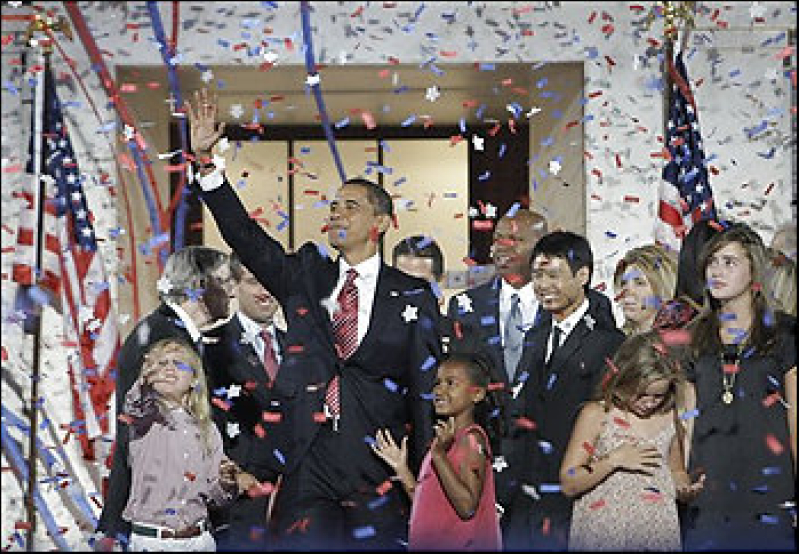
Sen. Barack Obama accepted the Democratic presidential nomination Thursday night with a speech many described not as inspirational, but as workmanlike and practical.
The presidential candidate clearly appealed to his party and to those who have already thrown their support behind the Illinois senator as he spelled out what “change” would look like, particularly for the average working-class American, and challenged Republican John McCain’s judgment.
Many have praised Obama’s speech, saying it left out flowery and poetic language and got his points across about what he will do for America and its people.
"America, we are better than these last eight years,” Obama said at Invesco Field in Denver. "This moment – this election – is our chance to keep, in the 21st century, the American promise alive."
But not all are raving in praise.
Family Research Council president Tony Perkins criticized the Illinois senator for speaking about his many plans to change America, but with no details. Perkins also noted that Obama spent a significant portion of his speech criticizing presumptive Republican nominee John McCain and President George W. Bush.
“Barack Obama speaks somewhat poetically, but there is no substance,” Perkins said in a Focus on the Family special radio broadcast. “And I thought he was tremendously lacking in substance and seemed, again, very defensive in the way he spoke. He defended his patriotism [and] constantly attacking John McCain.”
While more than 80,000 applauded and cheered the Illinois senator from the football stadium, conservative voters were left dissatisfied.
Amid the “eight years is enough” talk and promises of change with regards to health care, education, dependency on foreign oil, taxes and other issues important to working-class Americans, he hardly mentioned issues high on the priority list of conservatives – including abortion and marriage, values voters say.
“We may not agree on abortion but surely we can agree on reducing the number of unwated pregnancies in this country,” Obama said in the latter half of his speech. “I know there are differences on same-sex marriage, but surely we can agree that our gay and lesbian brothers and sisters deserve to visit the person they love in a hospital and to live lives free of discrimination.”
Except for the brief mentions, the Democratic nominee did not address the key issues important to the voting bloc that traditionally has tended to be Republican.
Perkins said he was “very surprised” that Obama did not talk much about the controversial issues.
“It was about three quick things he mentioned and if you happened to blink or get up to get a coke you would have missed it,” the social conservative leader commented. “No time at all devoted to those issues.”
“[Obama was] clearly playing more to his base than trying to reach out to marginal evangelicals who may feel a little distant from the Republican Party,” Perkins said. “He certainly was not speaking to them tonight.”
But to supporters, Obama’s speech in Denver was impressive and appealing because it clearly explained the differences between him and rival McCain and urged Americans to unite behind common beliefs.
Some previously undecided voters said they are more likely to vote for Obama after hearing his speech.
“All of the concerns or questions that I had have been answered,'' Janell Mader, a 32-year-old Republican from Pennsylvania, said, according to Bloomberg news. ``John McCain's going to have to do something pretty incredible next week for me to be convinced that the Republican Party deserves another four years.''
They say Obama made a good case of why there shouldn’t be another four years of a Republican in the White House.
Still, some say they want to hold out their decision until hearing McCain’s speech. On Friday, McCain introduced Alaska Gov. Sarah Palin, a social conservative, as his vice presidential running mate at a rally in Ohio. Palin, 44, is the first Republican woman tapped for national office.
The Republican National Convention will begin on Sept. 1 in Minneapolis.







